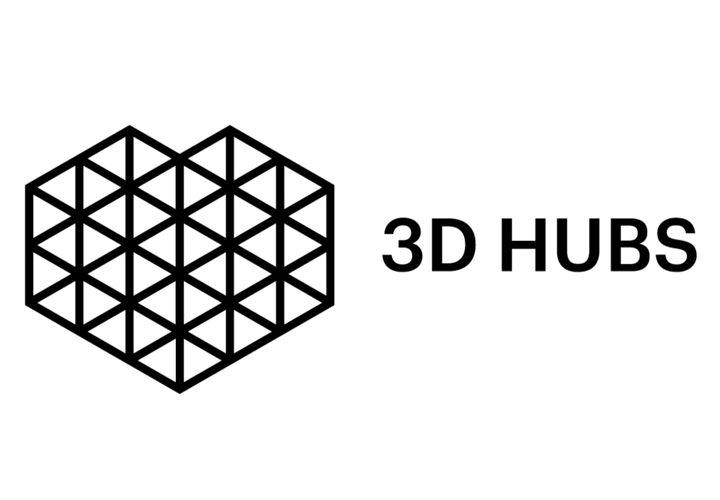
Today Protolabs announced they will acquire 3D Hubs, and I have some thoughts.
I’ve followed 3D Hubs’ journey since their inception, way back in 2013. At the time they were a scrappy startup company housed in a shared incubator on a quiet Amsterdam canal, and their business model was utterly different from today.

Here’s a picture of what I believe was their very first public exhibition in 2013. Apologies for the lousy framing, but it was challenging to figure out what would be important eight years later! We later visited the 3D Hubs office on the canal, and found they had grown to occupy most of the space.

They began in the heyday of consumer interest in 3D printing, when dozens of parties were launching equipment, often not having a clue what they were doing. In that world people were interested in 3D printing, but very few had any knowledge on the topic.
That’s where 3D Hubs stepped in: they offered a kind of connection service to link those with idle desktop 3D printers with people who wanted 3D prints but didn’t or could not operate their own. For a time, this approach worked.
But that business model slowly evaporated, and I think there are two main reasons why.
One is that the price of competent 3D printers dropped precipitously. While decent desktop equipment might have been priced at US$3,000 in 2013, you can buy far superior machines today for less than US$1,000, and sometimes even less. Machines also became easier to build and operate, meaning there were fewer and fewer clients to drive 3D Hubs’ business.
The second reason is that consumer interest dropped. After the craze of 2014-2015 when people were literally considering putting 3D printers in every room in their homes, people realized that was a supremely bad idea. Sales dropped, and correspondingly the need for 3D printed widgets of the quality producible by 3D Hubs’ then-vast network of idle home desktop 3D printers.
3D Hubs realized this and shifted gears, moving towards the professional space where there was still money to be made. This shift caused plenty of animosity among their consumer-oriented network, but it was an inevitable change.
In recent years 3D Hubs has become a network not of hobbyists with cheap 3D printers, but instead a network of professional equipment operators, and not just 3D printers, either. 3D Hubs transformed into a full-service manufacturing network. Growth resumed, and presumably so did profits.
But in that space 3D Hubs was not competing with the same parties; now they were competing with established, large-scale manufacturing services.
Some of these competitors are quite large and well-funded, and thus difficult to compete against. However, 3D Hubs still carried buzz from its prior days, operated nimbly as a startup can do, and had significant investor connections.
But now they’re no long on their own with the acquisition by Protolabs. As Sarah reported, the Minnesota company posted US$280M in stock and cash to take ownership of Amsterdam-based company, which should close later this month.
There’s also a US$50M extra payout, should 3D Hubs hit certain financial milestones over the next two years.
That’s quite interesting, because that date will be approximately ten years since 3D Hubs launched, and ten years is about as long as anyone should do anything. After that time, when someone is waving a rather large payment at you, you pay attention.
Evidently the 3D Hubs founders and investors decided it was time to check out. Was it worth the effort over ten years? I would think so, as a small group with a crazy idea in 2013 would have had no idea their project would be worth up to US$330M within a decade.
And so 3D Hubs completes the circuit. Well done!
